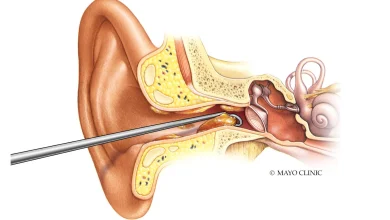6 In-Demand Skills For A Nursing Career

Nurses are an essential part of the healthcare system. They assist, analyze, and comfort patients. Along with the core responsibilities, nurses also act as a bridge between the doctor and the patient’s family by educating them about their medical condition, treatment plans, and the physician’s post-operative instructions.
On top of the basic academic requirements, nurses should learn other skills to perform their duties efficiently. To give you a better idea, we have put together a list of these skills:
-
Table of Contents
Desire For Learning
When nurses graduate, they are not expected to be well-versed to undertake all the nursing responsibilities. What matters is their ability to make intelligent decisions in complex situations, guided by facts and best practices. So if you are interested in working in nursing fields like emergency medicine or critical care, you will likely need a lot of practice and further study after graduating from your nursing program.
Employers recognize this gap and provide plenty of supervised chances for new graduates to learn from experienced nurses through preceptorships and mentoring programs. As professionals, nurses must constantly assess their competence and avoid taking on duties beyond their scope of practice without assistance or extra training. Remember, it is the primary and most important duty of a healthcare provider to avoid causing injury to their patients.
To be the kind of nurse a family would want to look after a loved one, you must be dedicated to lifelong learning and driven to keep abreast of advancements in the profession. Unlike in the past, pursuing an advanced degree in the relevant nursing area has become a lot easier, thanks to online learning. Whether you want to earn a master’s degree or apost master’s certificate nurse practitioner online, the internet is peppered with many options.
-
Teamwork
Teamwork is the backbone of nursing. Being a nurse, you will have to interact with fellow nurses and several other medical professionals, including paramedics, healthcare assistants, and doctors. When dealing with a patient in a more critical situation, working efficiently with others and understanding their roles is essential.
-
Empathy
Empathy is putting yourself in your patients’ position and comprehending how they see the world. For example, when a patient calls for help and then observes nurses strolling by their hospital room door, they do not see the patients the nurses are trying to help. They only want their needs to be addressed at the earliest. So if a nurse takes a moment to reassure patients that help is around the corner, it optimizes the patient experience.
Nurses assist vulnerable individuals from a range of backgrounds. As a result, nurses must possess a high sense of empathy to correctly foresee their patients’ requirements and comprehend their emotional responses.
-
Communication
Though communication skills are critical in any job, they are especially essential in healthcare settings. Be it a busy emergency ward or a laboring room; the ability to express and receive information calmly and promptly could be a matter of life or death.
It is also crucial to document patient and medication information appropriately, as these notes could potentially save lives. Besides, a patient’s health can be at risk if you fail to provideyour coworkers with complete and accurate information.
Good communication does not come naturally to all. But the good news is that you can learn by taking the following measures:
- Improve your body language: Effective communication heavily relies on body language. For example, standing or posing while you speak might convey meanings beyond what you say. Therefore, it is vital to detect and rectify any indicators of inadequate body language. One way to do so is to sit in front of a mirror and pay attention to how you hold yourself. In addition, make a conscious effort to straighten your back as much as possible to avoid looking tired or unsure of yourself.
- Engage in active listening: To become a good communicator, you must also be a good listener. Listening carefully can elicit crucial information about a patient’s health or concerns about their treatment. Direct your attention to the speaker and avoid becoming distracted by anything else around you. However, before you stare your patient straight in the eyes, consider their cultural background, as such behavior could be regarded as unacceptable in some cultures.
- Make adjustments: As a nurse, every patient that comes to you has unique communication requirements. Depending on the patient’s health and literacy level, your communication skills and manner will have to change.
-
Flexibility
In nursing, flexibility could include working in several wards and being called in at the last minute to fill a shift. However, it emphasizes the importance of swiftly becoming acquainted with your surroundings.
Furthermore, nurses must be strong and capable of handling various situations. Among other things, you will be expected to deal with violent and threatening behavior from an unstable patient or assist a new mother during childbirth. Therefore, the capacity to adapt to any circumstance is exceptionally beneficial.
A nurse’s work relies heavily on leadership skills, which may not seem like the most obvious choice on our list. That said, you will be expected to step in and handle issues independently. A few examples of this are assisting less-experienced coworkers or assuming the reins when there is no doctor present. Also, as your career progresses, you may be tasked with leading a team or overseeing a ward.
-
Attention To Detail
When working with drug doses, it is essential to be aware of the finer details. It can be very easy to make mistakes, especially when you are in the middle of a long shift. As a registered nurse, you are entitled to verify serial numbers and expiration dates. Your attention to detail can save lives and prevent disasters.
Paying close attention to the details can also help you identify particular behavioral patterns in patients that could be a warning sign. You could be scrutinized and possibly sued for negligence if you miss something vital during an initial appointment.
Wrapping Up
Becoming a nurse is a big deal. The journey could be emotionally exhausting, and you are likely to be exposed to some of the most challenging circumstances. But nursing is also immensely rewarding, as you will be able to make a difference in your community and advance in a variety of different specializations. On top of that, the demand for nurses is marking a constant uptick. That being said, you must embrace the skills listed above to excel in your career.
Visit for more articles: forbesblog.org




